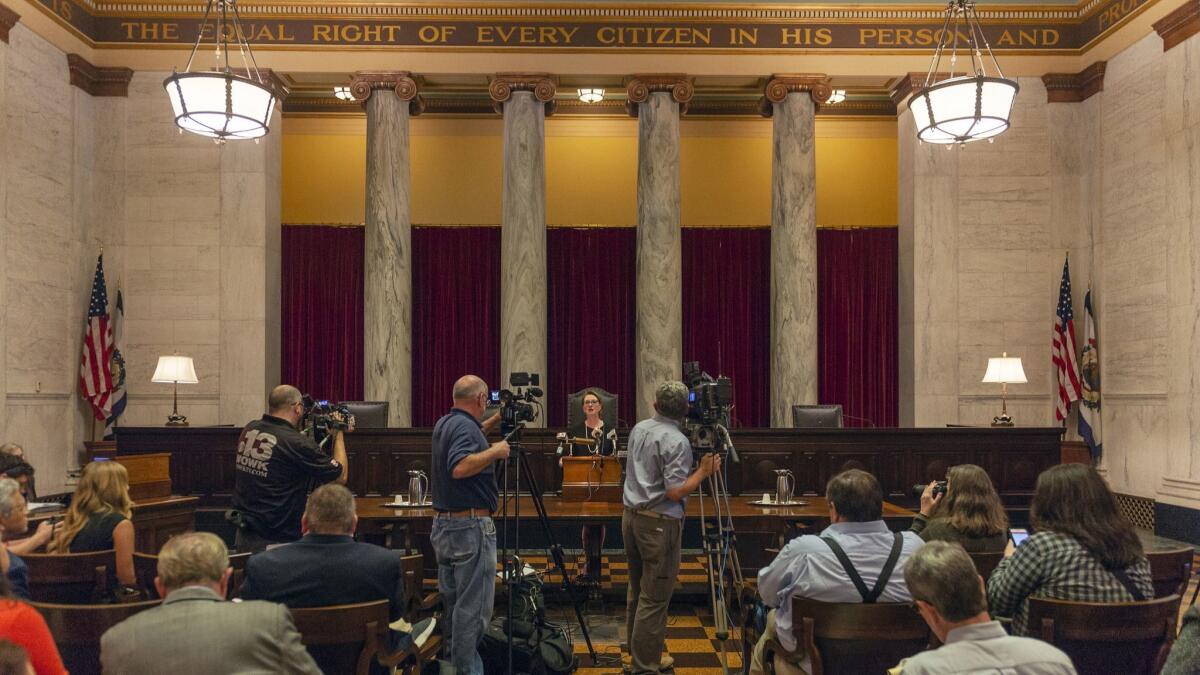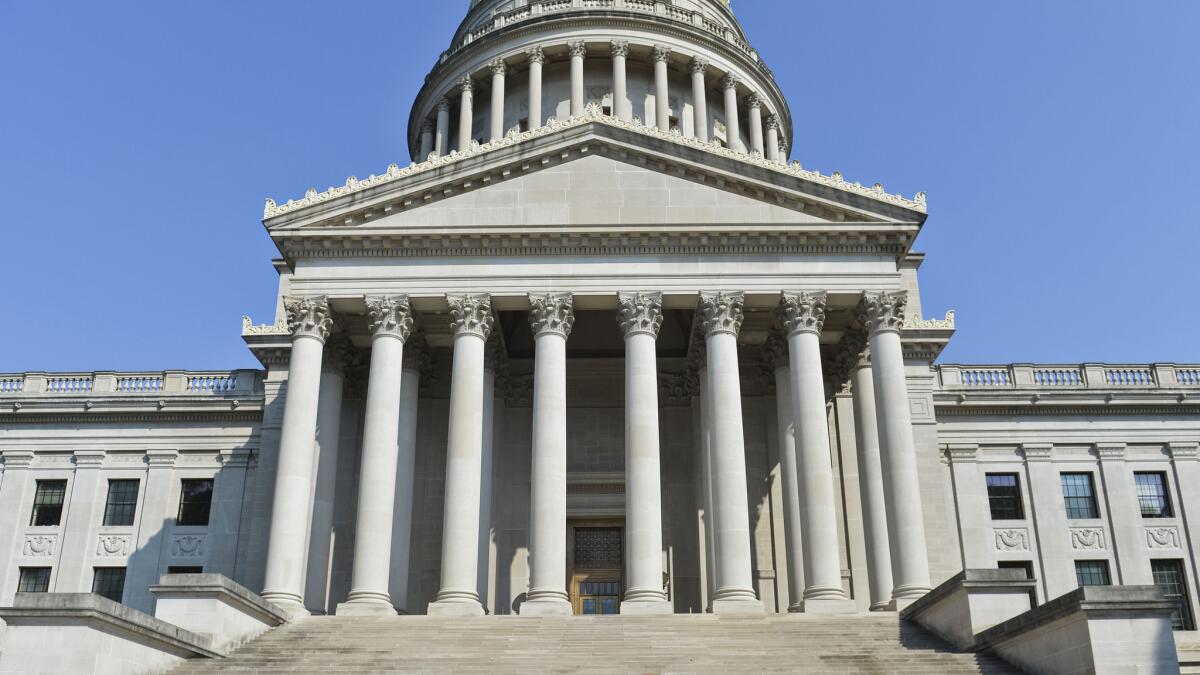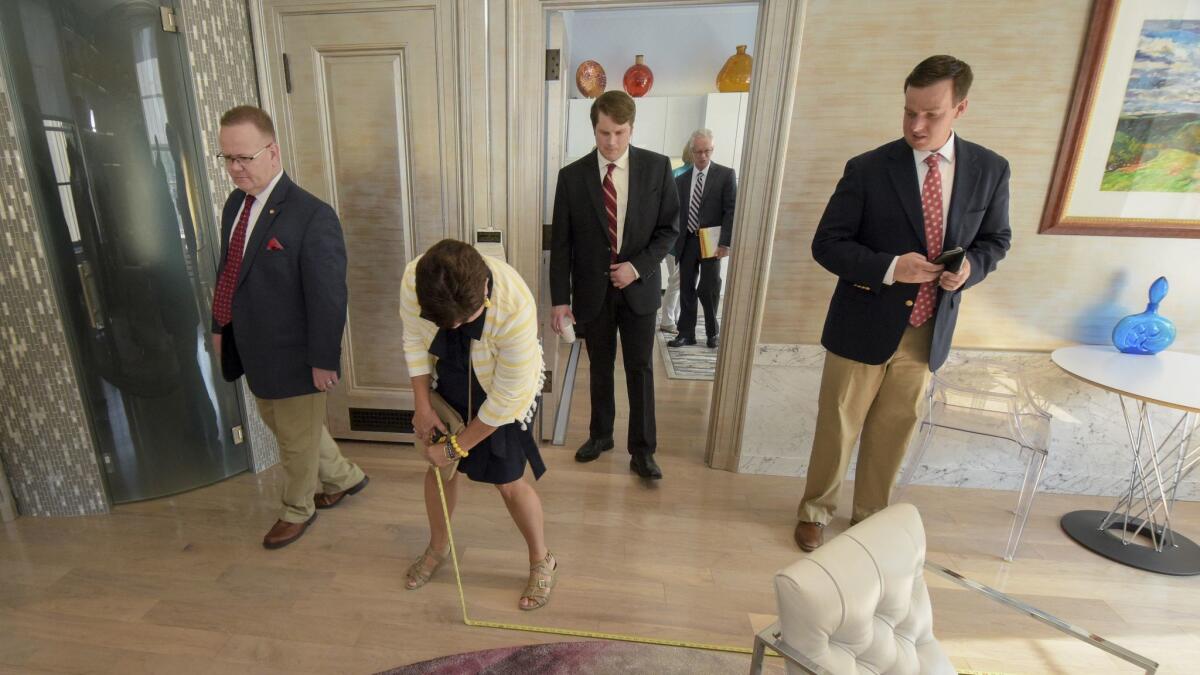Lavish spending. Accusations of a ‘witch hunt.’ Behind the impeachment of West Virginia’s entire Supreme Court

West Virginia’s House of Delegates made history this week when it voted to impeach every sitting Supreme Court justice in the state.
Republicans cheered, saying they were one step closer to removing an unethical bench prone to excessive spending. Democrats complained, with one calling the move a “witch hunt” designed to push the court rightward with Republican replacements.
The 11 articles of impeachment that passed Monday against four justices in West Virginia — after hours of debate — set the stage for a showdown in the state Senate, which will try the judges and decide whether to remove them from office.
No date has been set for trial. In the meantime, two judges have quit and legislators are making their cases for or against the remaining jurists in an attempt to sway a case that could have long-lasting effects on one of the country’s poorest states.
Who was impeached?
The House of Delegates, which is made up mostly of Republicans, voted to remove two Democratic and two Republican justices. The Democrats are Chief Justice Margaret Workman and Justice Robin Davis. The Republicans are Justice Allen Loughry — who is also named in a federal indictment on charges related to those made in the impeachment — and Justice Beth Walker. On Tuesday, Davis announced her resignation and accused Republicans of plotting against Democrats. Another Democrat, Justice Menis Ketchum, resigned last month and admitted to charges of wire fraud.

What’s the back story?
Local TV news journalists last year investigated the court and found that Loughry and other justices spent excessively on office renovations and furniture and failed to call each other out on the spending. The purchases included a $32,000 couch and a $7,500 wooden floor medallion for Loughry’s office, as well as an $8,000 chair for Davis. In total, the judges’ spending on high-priced furniture and decor added up to hundreds of thousands of dollars. Walker and Workman also stand accused of spending more than a $100,000 each. Davis was impeached because of office renovations that cost $500,000 and Loughry for $363,000 in similar spending.
Loughry, Workman and Davis also were charged with letting some judges get paid more than they are legally allowed.
Loughry is under a 25-count federal indictment accusing him of making false statements and tampering with witnesses. He has an October trial date. He is said to have requested that state workers move furniture to his home. He is also accused of taking a state car to signings he conducted for his book, “Don’t Buy Another Vote, I Won’t Pay for a Landslide: The Sordid And Continuing History of Political Corruption in West Virginia.”

Is the spending illegal?
Federal prosecutors are preparing a case against Loughry to say he violated federal law. The FBI monitored the now-suspended judge after suspicions arose that he was defrauding the state. The alleged fraud included misuse of official cars and credit cards for nonwork business and lying to other judges about the matter, knowingly making false mileage claims when he was using a state car, and the illegal conversion “to his own personal use of a valuable and historic desk that belonged to the Supreme Court.”
Loughry is also accused of intentionally misleading government investigators and trying to influence a court employee’s testimony amid an investigation into his office renovations.
Under West Virginia law, the legality of spending by the judges is murkier. The state is atypical for allowing the Supreme Court to set and manage its budget. On Monday, legislators spent much of their time debating whether excessive spending among the judges was illegal or simply in bad taste. An amendment up for vote in the fall will give the Legislature the power to oversee the judicial budget.

Why do many Republicans and Democrats disagree on impeachment?
Democrats largely supported the impeachment of Loughry, who was elected in 2012. But they came out strongly against impeaching members of their own party. That’s because if judges are removed, their replacements would be appointed by Republican Gov. Jim Justice. Those new justices would be in place until 2020. The Legislature could also decide to call for special elections before then.
Impeaching judges other than Loughry “was a power grab, was a takeover of the court and using the impeachment process to take over another branch of government,” said Delegate Barbara Evans, a Democrat, in a statement to the Associated Press.
Republicans disagreed.
“It has become clear that our Supreme Court has breached the public trust and lost the confidence of our citizens,” House Speaker Pro Tempore John Overington, a Republican, said in a statement. “This somber action today is an essential step toward restoring the integrity of our state’s highest court.”

What do the justices say?
Davis, who was on the court for 21 years, said she resigned only so her seat would be up for election in November instead of it being filled by a Republican appointee. Ketchum, who pleaded guilty to federal charges last month, will also see his replacement elected in November. Elected justices serve for 12 years.
Other judges have largely denied wrongdoing or not commented.
Walker, who joined the court last year, defended herself this week by saying spending patterns predated her time on the bench. Workman said in a statement that she would place “all the facts before the Senate in the next phase of this process.” Loughry did not comment after his impeachment.
What happens to court cases?
The court completed the cases on its schedule before the summer break. Its next term starts in September.
Twitter: @jaweedkaleem
More to Read
Sign up for Essential California
The most important California stories and recommendations in your inbox every morning.
You may occasionally receive promotional content from the Los Angeles Times.











